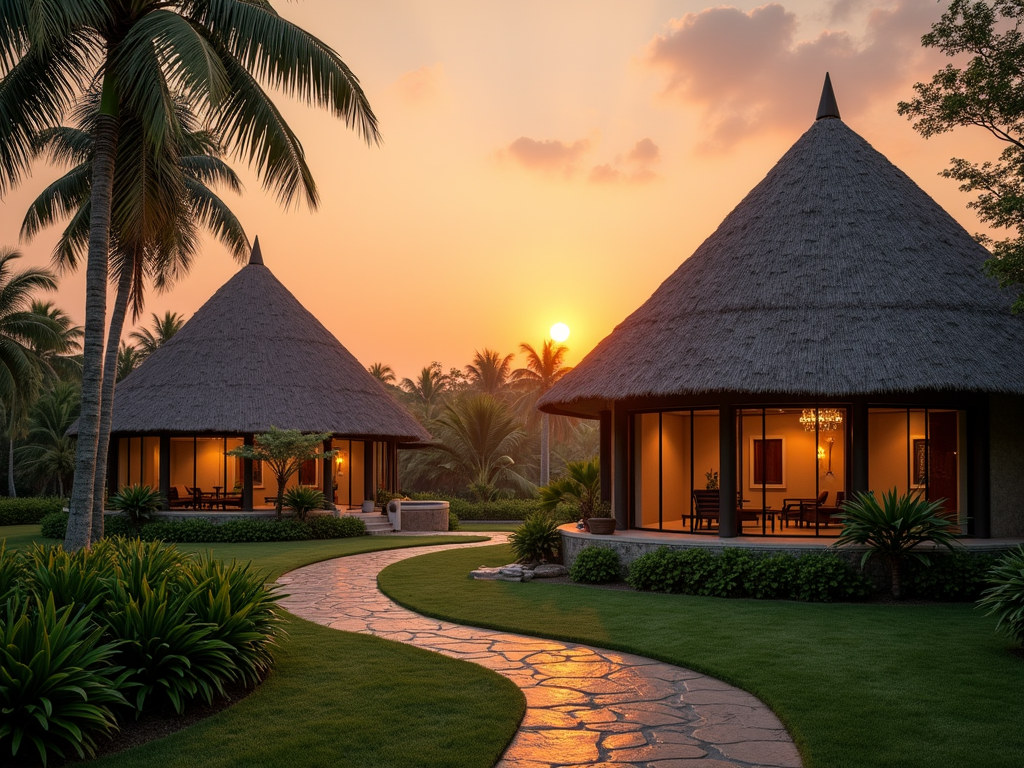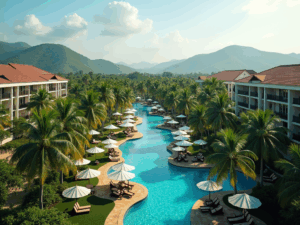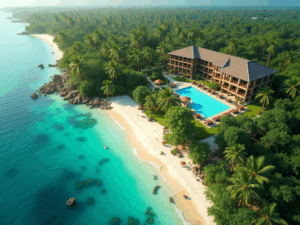At Fortis Lifestyle & Hospitality (FLH), we believe in the power of hospitality to breathe new life into Nigeria’s heritage sites. Our strategic investment in Whispering Palms Resort in Badagry is a testament to our commitment to blending cultural preservation with luxury hospitality. This article explores how such investments not only enhance guest experiences but also drive sustainable growth and revenue.
The Strategic Importance of Badagry in Nigeria’s Tourism Landscape
Badagry stands as a living testament to Nigeria’s complex colonial past and vibrant cultural heritage. As one of the first points of contact between European traders and West Africa, it carries the weight of history—both painful and profound. The town’s role in the transatlantic slave trade, its early missionary settlements, and its fusion of indigenous and foreign influences make it a compelling destination for cultural tourism. At Fortis Lifestyle & Hospitality (FLH), we recognize Badagry’s untapped potential as a tourism hub and have strategically positioned Whispering Palms Resort to amplify its historical narrative while driving sustainable growth.
Our approach is rooted in leveraging Badagry’s heritage to create immersive guest experiences. The resort’s design incorporates local architectural elements, such as traditional thatched roofs and open courtyards, blending seamlessly with modern luxury. We’ve curated guided tours to nearby landmarks like the Badagry Heritage Museum and the Point of No Return, ensuring guests engage deeply with the town’s history. These experiences aren’t just add-ons—they’re integral to our value proposition, differentiating Whispering Palms from generic beach resorts.
Sustainability is another pillar of our strategy. By sourcing materials locally and employing community artisans, we reduce our environmental footprint while empowering Badagry’s economy. Our farm-to-table dining initiatives highlight indigenous cuisine, such as efo riro and pounded yam, prepared with organic ingredients from nearby farms. This not only supports local agriculture but also enhances guest satisfaction by offering authentic, high-quality culinary experiences.
From a business perspective, these strategies drive revenue and loyalty. Cultural immersion increases average stay duration, while sustainability initiatives reduce operational costs and attract eco-conscious travelers. Our partnerships with local historians and performers also create exclusive content—like storytelling sessions by Griots—that guests can’t find elsewhere. This positions Whispering Palms as a leader in Nigeria’s heritage tourism space, setting a benchmark for how resorts can marry profitability with cultural preservation.
At FLH, we don’t just operate resorts; we curate legacies. By transforming Whispering Palms into a beacon of sustainable and culturally rich tourism, we’re proving that heritage sites can thrive through innovative hospitality investments—delivering world-class experiences while preserving Nigeria’s past for future generations.
Conclusions
Investing in Nigeria’s heritage sites through hospitality is more than a business strategy; it’s a commitment to preserving our past while building a sustainable future. At Fortis Lifestyle & Hospitality, our work at Whispering Palms Resort exemplifies how cultural richness and modern luxury can coexist, offering unparalleled experiences to guests and driving economic growth. Together, we are setting a new standard for tourism in Africa.





